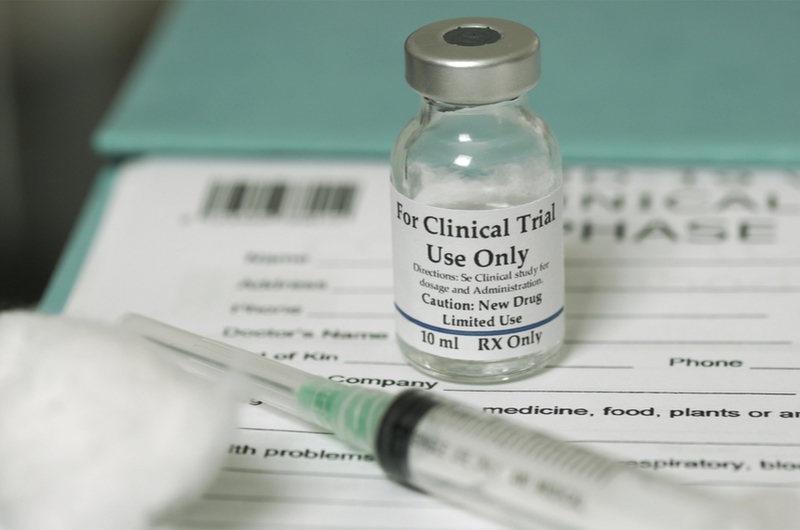How To Sign Up For A Clinical Trial (And Why You Might Want to)
Are you interested in participating in a clinical trial? Learn about clinical trials, what to expect, and why it’s a good idea to take part.
Clinical trials are one of the final steps for researchers working on medical research. Once a project moves into the clinical trial phase, the medication or medical device has been vetted by the U.S. Food and Drug Administration (FDA). A common misconception about medical trials is that the doctors are experimenting on a patient without any guidelines or safety nets. This is untrue. Before anything is released to be tested on humans, it has gone through rigorous tests.
There are many reasons why you may want to take part in a clinical trial. Often leading-edge treatments come from these clinical trials and may improve your medical condition. Secondly, you become a part of the research team, in that you are going to be giving them feedback on the apparatus or medication. This, in turn, becomes incredibly crucial data that is used to improve or refine the medication or device. Your participation has a lasting impact, not only locally and personally, but potentially on a global scale. Learn more about clinical trials and studies, what they are, what to expect, benefits of participation, and how to find a clinical trial. 
What are Clinical Trials and Studies?
It may surprise you to learn that there are many different types of clinical trials. You may be familiar with medication studies, but did you know that there are also clinical trials that are merely observational? These types of trials gather information about lifestyle and habits. They watch the effect of certain ways of living on cognitive health. Often these studies are done to identify potential for new clinical trials in the future.
The overall goal of a clinical trial is to evaluate a surgical, medical, or behavioral intervention. Often clinical trials are performed to refine and reduce the side effects of an existing medication or apparatus. Some clinical trials have as their goal prevention of a disease, ways to catch something early before it becomes debilitating.
Benefits of Participating in a Clinical Trial
One of the largest incentives for someone to participate in a clinical trial is because treatments received for a particular health problem have not been resolved using traditional means. Others participate because the health problem they face has no known cure. A clinical trial is one way to gain access to new medical treatments before they are available to the larger public. Without the willingness of volunteers to participate in clinical trials, major medical breakthroughs are not possible.
What Happens in a Clinical Trial?
Each clinical trial is set up just a little differently, however there are some commonalities all studies share. First, you meet the research team who explain in significant detail what it is you are signing up for. They also gather information about you, your life, and your health. This is the time to ask any question you may have, and to voice any concerns. Most pre-screening sessions also determine whether you are a good fit for the clinical trial. Once this is over you are asked to sign a consent form that basically states that you are aware you are engaging in a clinical trial.
The next visit is often referred to as the baseline visit. This is where researchers take your readings as they are before the introduction of the trial. This can include bloodwork, physical tests, cognitive testing, and more.
Next, you are randomly assigned to a group. You may be part of the treatment group, or you may be part of the control group. You are not told which group you are in, however. If you are assigned to the control group, you may not be given the actual medication at all, but rather a placebo. A placebo is a medication or series of tests that are offered that have zero effect. This is something you may want to consider if you are engaging in a clinical trial to try and find a cure for your illness.
Depending on the type of clinical trial it is, you may remain onsite in a hospital-like facility. Most simply go home after each visit, and then report regularly using a secure online portal.
Where can I find a clinical trial that will accept me?
There are several clinical trials ongoing at any point in time throughout the U.S. (and even abroad). The best way to locate a clinical trial that interests you is to use the following medical research hubs:
ClinicalTrials.gov : This is a database that lists both public and private human clinical studies. The list contains clinical trials in the U.S. as well as abroad (as many as 220 countries). Keep in mind that a trial’s listing on this site does not indicate it has been approved by the USDA, especially if the clinical trial is outside of the U.S.
NIH Clinical Research Studies: As one of the leading sources of funding for medical research, the National Institute of Health (NIH) lists a database of research studies taking place at its main facility in Bethesda, Maryland. You can also register as a research volunteer and be listed on their database so researchers can find you.
ResearchMatch: This is a nonprofit organization also funded by the NIH. It connects interested volunteers with ongoing, and approved, research studies taking place in top medical facilities throughout the U.S.
Altasciences LA (Formerly WCCT Global): Altasciences is a Canadian based clinical research orginization. They have acquired multiple smaller research organizations, like WCCT Global. WCCT Global (now Altasciences LA) is a cypress based clinical research organization that offers various clinical trial volunteer positions, often paid, for various diseases. At the time of this writing they are starting a trial for Alzheimer's disease medication. The trial has compensation of up to $11,250. An example trial period is 1 screening visit, 19 night stay in the facility, and a follow up outpatient visit.
Once you find a clinical trial you are interested in, contact the study coordinator or the clinical trial project manager. This information is usually located within the description of the project. It is important you discuss your decision to participate in a clinical trial with your regular doctor or specialist. He or she may also be able to answer questions and guide you to trials for which you would qualify.
How do researchers decide who will participate?
Often researchers are looking for someone who is of a certain age, background, genetic profile, your lifestyle, and what types of medications you currently take. Most participants are asked to take part in only one clinical trial at a time. Keep in mind that you may be turned away from several clinical trials until you find one for which you are qualified.
As a rule, medical participants tend to be older and from a wide array of diverse populations and ethnicities. These requirements are in place because researchers often wish to learn how new therapies, drugs, surgical procedures or other will work on aging bodies. Most older individuals have special health needs that are not present in younger people.



